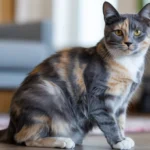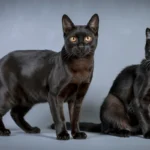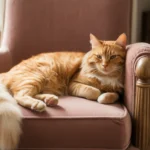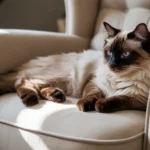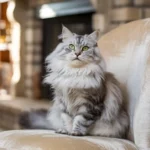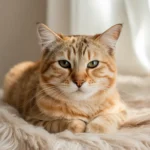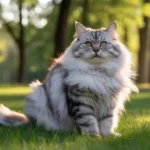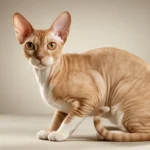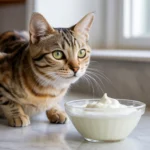Dark Calico Kitten: What Makes These Felines So Special?
The Dark Calico Kitten is a rare and enchanting feline that has captured the hearts of cat lovers worldwide. With its striking patchwork coat and strong-willed personality, this kitten isn’t just a pretty face—it carries unique genetic traits and a one-of-a-kind charm. But what sets the Dark Calico Kitten apart from other cats, and why are they often misunderstood or confused with similar-looking felines like Tortoiseshell Calico Cat or Dilute Calico? Let’s take a closer look at what makes this kitten truly special.
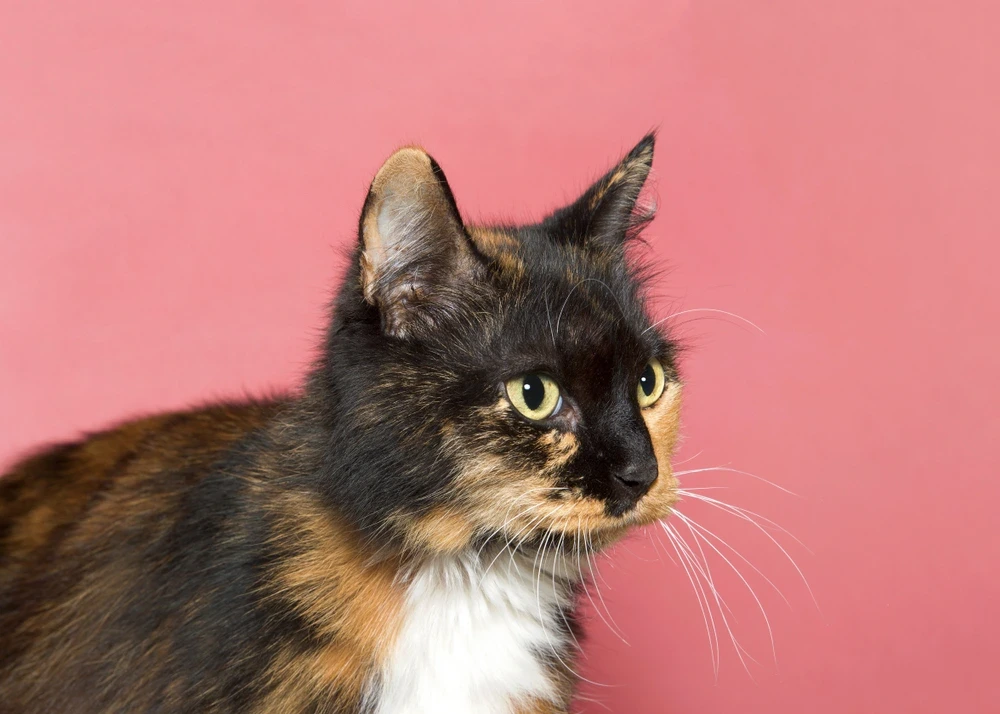
Content
The Beauty Behind The Coat
At first glance, the Dark Calico Kitten stands out due to its vivid tricolor coat—typically a mix of black, orange, and white. However, the “dark” variation of calico leans heavily into black and deep orange shades, making it visually bolder than standard calico patterns. Unlike Dilute Calico cats, which feature softer, pastel-like versions of these colors, dark calicos carry a more intense and high-contrast appearance.
This coloration isn’t just about aesthetics—it’s the result of a rare genetic quirk that mostly occurs in females. In fact, almost all Dark Calico Kittens are female due to the way color genes are inherited through the X chromosomes. Males with this coloring are exceptionally rare and often sterile.
The Unique Personality of Female Calico Cats
The phrase Female Calico Cat Personality often brings to mind an image of a sassy, independent, and strong-willed cat—and for good reason. While every cat has its own temperament, many calico owners report that their felines exhibit a certain “cattitude” not commonly found in other breeds or coat types.
Dark Calico Kittens often grow into cats that are affectionate but like things on their own terms. They’re intelligent, curious, and fiercely loyal to their humans. Some even suggest that calicos are more emotionally expressive than other cats, which might explain why so many pet owners feel a strong bond with them.
Calico vs. Tortoiseshell and Dilute Calico
It’s common for people to confuse the Dark Calico Kitten with other patterned cats, especially the Tortoiseshell Calico Cat and the Dilute Calico Cat. While they may look similar, there are key differences:
- Tortoiseshell Calico Cat usually lacks significant white patches and instead has a blended appearance of black and orange or cream and gray.
- Dilute Calico Cat has the same patchy pattern as calicos but in softer, muted tones like gray, cream, and peach.
- The Dark Calico Kitten, on the other hand, features bold black and orange spots, separated clearly by white.
Understanding these distinctions can help you properly identify your kitten’s coat type and appreciate the genetic uniqueness of each pattern.
Are Calico Cats Autistic?
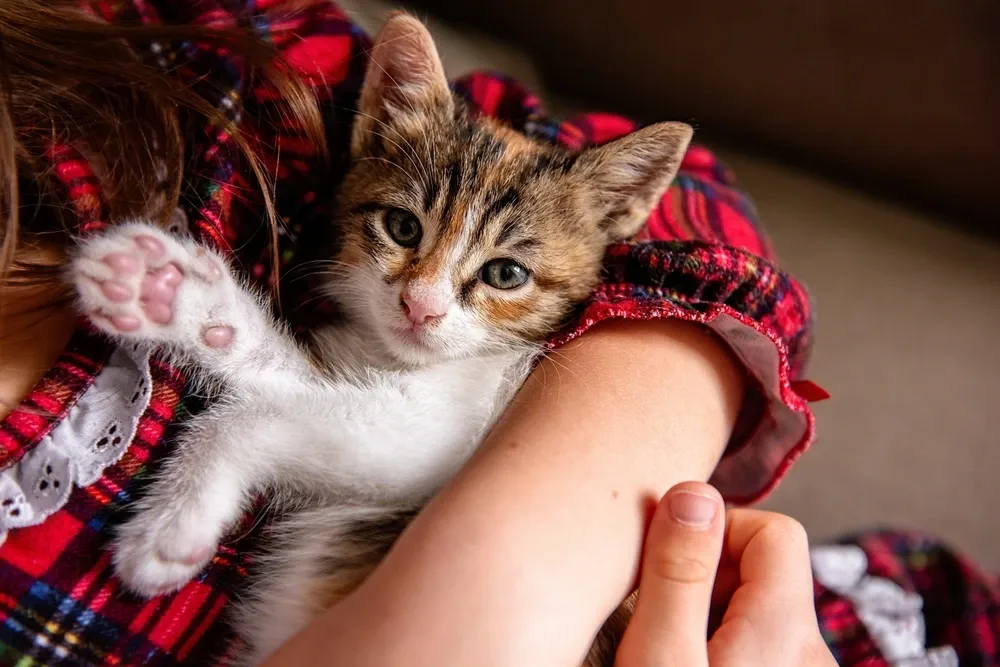
A question that occasionally surfaces online is: Are Calico Cats Autistic? The short answer is no. While calicos—and particularly Dark Calico Kittens—can exhibit quirky or unusual behaviors, there’s no scientific evidence linking their coat color to autism or any neurodevelopmental condition.
The misconception likely stems from their independent and often unpredictable personalities. While they may be more expressive or selective in social interaction, that doesn’t equate to a medical or psychological condition. Like all cats, their behavior varies widely depending on upbringing, environment, and individual temperament.
What Breed Is a Dark Calico Kitten?
Interestingly, Dark Calico Kittens are not a breed but rather a color pattern that appears across many breeds. You can find calico patterns in breeds like the American Shorthair, Persian, Maine Coon, and Japanese Bobtail. The unifying trait is the tri-color coat—not the size, shape, or fur texture.
This means that you could potentially find a long-haired Dark Calico Kitten with Persian roots or a sleek, short-haired one from the American Shorthair line. Regardless of the breed, their appearance and behavior can vary widely, adding even more to their mystery and charm.
Why Are Calico Kittens So Special?
So, why is the Dark Calico Kitten often described as one of the most special types of cats? It’s not just about looks. Here are a few reasons:
- Genetic rarity: Especially in male calicos, which occur in only 1 in 3,000 births.
- Symbol of luck: In many cultures, calicos are considered lucky charms, especially in Japan.
- Memorable personalities: Their strong sense of independence and affection makes them unforgettable companions.
- Versatility in breeds: You can enjoy the calico pattern across various cat breeds and sizes.
Their mystique, combined with vibrant coloring and a spirited personality, truly makes the Dark Calico Kitten one-of-a-kind.
Final Thoughts
The Dark Calico Kitten is more than just a visually striking feline. With a bold personality, rich genetic background, and cultural significance, these kittens offer both charm and depth. Whether you’re a new cat owner or a seasoned feline lover, adding a Dark Calico Kitten to your life means embracing a companion who is beautiful, expressive, and unforgettable.
For pet lovers looking to pamper their pups, don’t miss our guide on Healthy Dog Treats to keep tails wagging and wellness in check.
FAQs
Is my cat calico or tortoiseshell?
If your cat has three distinct colors (usually black, orange, and white), it’s likely calico. If the coat has a more blended or marbled look with little or no white, it may be tortoiseshell.
What breed is a black calico cat?
A “black calico” isn’t a breed but a color pattern. The pattern can occur in multiple breeds like American Shorthair, Persian, or Maine Coon.
Are calico kittens worth anything?
While Dark Calico Kittens are not generally sold at higher prices due to their color alone, rare male calicos can be worth more due to their genetic rarity.
Why are calico cats so special?
Their unique genetic makeup, cultural symbolism, and spirited personalities make calicos, especially Dark Calico Kittens, truly special and beloved by cat enthusiasts.

Jerry takes a deep dive into the aquatic world. He’s your go-to for setting up the ideal fish tank, with expert advice on water quality and fish care.

